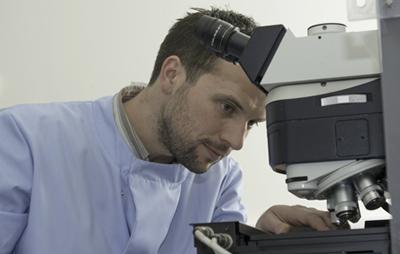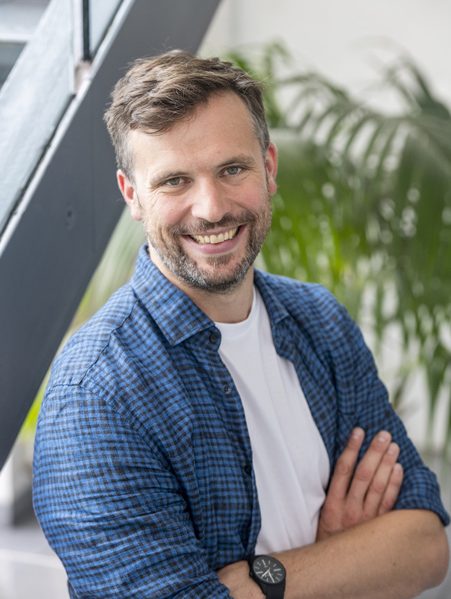Research links between Southampton’s Centre for Biological Sciences and Brazil shed new light on the process of evolution

Southampton evolutionary ecologist Dr Thomas Ezard is looking at new ways to understand how biodiversity has evolved over many centuries. A research collaboration with Professor Tiago Quental at the University of São Paulo in Brazil is assessing the many factors that may have influenced evolution.
While climate change is an obvious cause of evolution, Tiago has discovered, with colleagues at the University of Gothenburg, that competition for prey played a major role in the evolution of the dog family in North America. An analysis of fossil evidence found numbers of species of dog fell from more than 30 to nine after early species of the cat family arrived from Eurasia.
Thomas already uses the fossils of microscopic aquatic creatures called planktonic foraminifera, often less than a millimetre in size and found in all of the world’s oceans. The remains of their shells now resemble grains of sand and date back hundreds of millions of years to the days of the dinosaurs.
Despite their similar broad interests, the differences in their study systems meant Thomas and Tiago had not worked together until an opportunity arose through the University of Southampton and the São Paulo Research Foundation (FAPESP) partnership scheme. These new academic links between the Universities of Southampton and University of São Paulo have already resulted in two workshops and an undergraduate student in São Paulo moving to a PhD position in Thomas’ lab in Southampton.
The workshops, held in each partner city, attracted leading researchers from around the world. Those discussions led to a special edition of the prestigious academic journal Philosophical Transactions of the Royal Society B edited by Thomas and Tiago, along with Fellow of the Royal Society Professor Michael Benton from the University of Bristol. It contains articles on the topic from leading researchers around the world, answering a related set of questions using computer simulations and real data across diverse systems from dinosaurs to plankton.
